
Home


Hungary


Cardinal József Mindszenty


1956 Hungarian Revolution (My Story)
(My Eyewitness story of our Freedomfight
and Resistance against the Soviet Invasion)


50th Anniversary of our Freedomfight


My Travel Pages

Africa

America

Asia

Europe

Hungary

Oceania
My Russia pages

Russia
Russia History & Facts in brief
Moscow

Moscow

Catholic Cathedral

Christ the Saviour Cathedral

Kazan Cathedral

Kremlin

Kremlin Cathedrals

Moscow Airport

Moscow Buses

Moscow Metros

Novodevichy Convent

Red Square

Virgin on the Moat Cathedral
- - -
- -
Saint Petersburg

Saint Petersburg

Artillery Museum

Hermitage

Kronstadt

Peterhof

Oranienbaum

Peter and Paul Fortress

Saint Petersburg Airport

Saint Petersburg Buses

Saint Petersburg Metros

Saint Petersburg Trams

Vyborg
- - -
- -
Vladivostok

Vladivostok

Vladivostok Buses

Vladivostok Trains

Vladivostok Trams
- - -
- -
Volgograd

Volgograd

Tractor Factory - Museum

Volgograd Airport

Volgograd Buses

Volgograd Trams

Volgograd Trolleybuses
|

Russia facts & history in brief
 My Russia pages directory
My Russia pages directory
Map of Russia
Vladivostok International Airport
Excerpted from Wikipedia, the free encyclopedia
| Vladivostok International Airport
|
| IATA: VVO - ICAO: UHWW |
| Summary |
| Airport type |
Public |
| Operator |
Vladivostok Avia |
| Serves |
Vladivostok |
| Elevation - AMSL |
46 ft (14 m) |
| Coordinates |
43°23'57?N, 132°09'05?E |
| Runways |
| Direction |
Length |
Surface |
| ft |
m |
| 06/24 |
3,191 |
973 |
Asphalt |
07R/25L
Closed |
8,202 |
2,500 |
Asphalt= |
| 07L/25R |
11,483 |
3,500 |
Concrete |
| 16/34 |
1,975 |
602 |
Asphalt |
Vladivostok International Airport (IATA: VVO, ICAO: UHWW)
is located near Artyom, Primorsky Krai, Russia roughly an
hour drive (44 kilometres) north of
center of the city of Vladivostok.
It was formerly known as Kiyevichi Airport, named after
Khutor Kiyevichi it replaced (in many sources
this is written as "Knevichi").
It consists of two passenger terminals: the Domestic
Terminal and the International Terminal.
The airport has two airfields, Key Lakes and Knevichi.
Key Lakes Airfield
The Key Lakes airfield was designed for aircraft
operating on regional routes.
It has two artificially covered landing strips
with a width of 21 metres.
One is 1000 metres in length and the second is 600 metres.
Knevichi
The Knevichi airfield was designed for all types of aircraft
and has two artificially covered take-off and landing strips:
The first runway is 3500 metres in length and 60 metres in width,
and has a PCN 44/R/B/X/T (mixed) surface covering;
The second runway has a length of 2700 metres and width of 60
metres, with a PCN 28/R/B/X/T surface covering.
2005-2006 Reconstruction
The Domestic Terminal of the Vladivostok International Airport
underwent complete renovation in 2005-2006, which made it one
of the most comfortable and up-to-date airport terminals
in Russia, besides Moscow airports.
The renovated terminal was re-opened on December 19, 2006.
Airlines and destinations
- Aeroflot (Moscow-Sheremetyevo)
- Air Koryo (Pyongyang)
- Dalavia (Khabarovsk)
- Domodedovo Airlines (Moscow-Domodedovo)
- Korean Air (Seoul-Incheon)
- KrasAir (Krasnoyarsk)
- Rossiya (St. Petersburg)
- SAT Airlines (Yuzhno-Sakhalinsk)
- S7 Airlines (Irkutsk, Novosibirsk, Petropavlovsk-Kamchatsky,
Yuzhno-Sakhalinsk
- Ural Airlines (Ekaterinburg)
- Vladivostok Avia (Abakan, Anchorage [begins April 2008],
Bangkok-Suvarnabhumi, Beijing, Busan, Dalian, Ekaterinburg,
Hanoi, Harbin, Irkutsk, Khabarovsk, Kitakyushu, Krasnodar,
Moscow-Vnukovo, Niigata, Novosibirsk, Osaka-Kansai,
Petropavlovsk-Kamchatsky, Seoul-Incheon, St. Petersburg,
Toyama, Tokyo-Narita, Ufa, Yakutsk, Yuzhno-Sakhalinsk)
- Yakutia Airlines (Yakutsk)

For a more information about
Vladivostok Airport see Wikipedia, the free encyclopedia

This page was retrieved and condensed from
(http://en.wikipedia.org/wiki/Vladivostok_Airport)
see Wikipedia, the free encyclopedia, January 2008.
All text is available under the terms of the
GNU Free Documentation License
(see
Copyrights for details).
About Wikipedia
Disclaimers

This information was correct in January 2008. E. & O.E.

2007
You can click on these photos for an enlargement
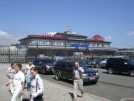 |
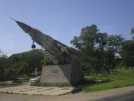 |
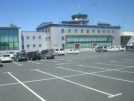 |
| Vladivostok Airport |
Vladivostok Airport |
Vladivostok Airport |
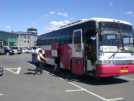 |
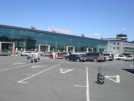 |
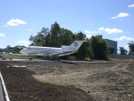 |
| Vladivostok Airport |
Vladivostok Airport |
Vladivostok Airport |
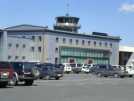 |
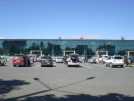 |
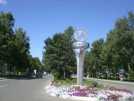 |
| Vladivostok Airport |
Vladivostok Airport |
Vladivostok Airport |
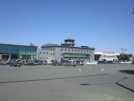 |
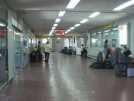 |
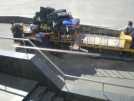 |
| Vladivostok Airport |
Vladivostok Airport |
Vladivostok Airport |
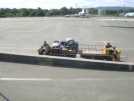 |
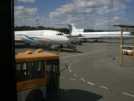 |
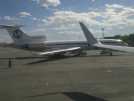 |
| Vladivostok Airport |
Vladivostok Airport |
Vladivostok Airport |
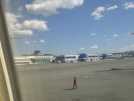 |
| Vladivostok Airport |

Vladivostok
Excerpted from Wikipedia, the free encyclopedia
Vladivostok is Russia's largest port city on the
Pacific Ocean and the administrative
center of Primorsky Krai.
It is situated at the head of the Golden Horn Bay
not far from the Russo-Chinese border and North Korea.
It is the home port of the Russian Pacific Fleet.
Names
The name Vladivostok loosely translates from Russian
as "rule the East" a name based on that of Vladikavkaz,
at that time a Russian fortress in the Caucasus.
The traditional Chinese name for the city is Haishenwai
(literally "sea cucumber cliffs").
In mainland China (PRC), it is often known under the
transliteration of Fuladíwosituoke but not in Taiwan (ROC).
The Japanese name of the city is Urajiosutokku; a rough
transliteration of the Russian and often shortened to Urajio.
In Korean, the name is transliterated as Beulladiboseutokeu,
in South Korea, Ullajibosuttokhu in North Korea, and
Beullajiboseu-ttokeu by Koreans in China.
History
Before Russia acquired the Maritime Province by
the Treaty of Aigun (1858), the Pacific coast
near Vladivostok had been settled
by the Jurchen and Manchu.
A French whaler visiting the Zolotoy Rog in 1852
discovered several huts of Chinese or
Manchu fishermen on the shore of the bay.
The naval outpost was founded in 1859 by Count
Nikolay Muravyov-Amursky, who named it after
the model of Vladikavkaz, a Russian
fortress in the Caucasus.
The first child was born in Vladivostok in 1863.
An elaborate system of fortifications was
erected between the 1870s and 1890s.
A telegraph line from Vladivostok to Shanghai
and Nagasaki was opened in 1871, the year when
a commercial port was relocated to this
town from Nikolayevsk-on-Amur.
The municipal coat of arms, representing
the Siberian tiger, was adopted in March 1883.
The city's economy was given a boost in 1903, with the
completion of the Trans-Siberian Railway which connected
Vladivostok to Moscow and Europe.
The first high school was opened in 1899. In the wake of
the Bolshevik Revolution, Vladivostok was of great
military importance for the Far Eastern Republic, the
Provisional Priamurye Government, and the
Japanese interventionists.
The taking of the city by Ieronim Uborevich's Red Army
on 25 October 1922 marked the
end of the Russian Civil War.
As the main naval base of the Soviet Pacific Fleet,
the city was closed to foreigners during the Soviet years.
Nevertheless, it was at Vladivostok that Leonid Brezhnev
and Gerald Ford conducted the Strategic
Arms Limitation Talks in 1974.

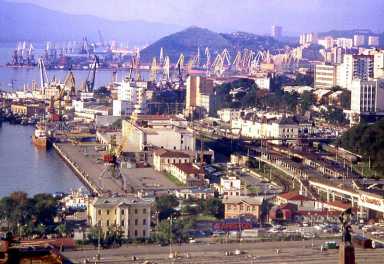

For a more information about
Vladivostok see Wikipedia, the free encyclopedia

This page was retrieved and condensed from
(http://en.wikipedia.org/wiki/Vladivostok)
see Wikipedia, the free encyclopedia, January 2008.
All text is available under the terms of the
GNU Free Documentation License
(see
Copyrights for details).
About Wikipedia
Disclaimers

This information was correct in January 2008. E. & O.E.
|